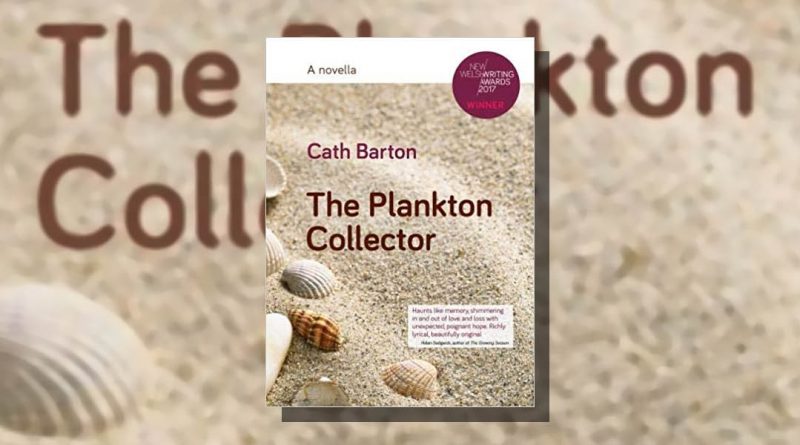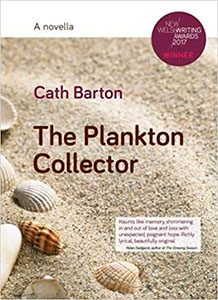The Plankton Collector by Cath Barton
-Reviewed by Dipika Mummery-
What if the grieving process could be alleviated by a kind stranger who somehow manages to make you believe that he is a dear friend, or a member of your own family? This is the premise of the beautifully written and fairytale-like novella The Plankton Collector (New Welsh Rarebyte) by Cath Barton, an established short and flash fiction writer who is using the novella form to try her hand at longer pieces.
The story revolves around a family who are struggling through a recent loss – parents David and Rose, and their children, Mary and Bunny. The Plankton Collector appears as a significant figure from David’s past, a kindly friend to Rose, and an uncle to the children as he attempts to use their memories to encourage them to come together to deal with their grief.
Barton uses a comforting, almost deceptively simple narrative voice similar to that of a children’s storyteller to weave the strands of her tale, creating a fable-like atmosphere.
“Mother turns and calls across the garden. If we cannot make out the words we can nonetheless sense the intention, which is to call her children. And look, here they come…”
This tone lulls the reader into thinking they are about to see a cosy scene of blissful family life, but we soon discover that this seeming happiness is short-lived, and that each family member is coping with their loss in their own way, through denial, isolation and a walling up of emotions. We focus on each person in turn and see, through their eyes, how the Plankton Collector comes to help them.
“And so it was, that on a day like any other – but we might note that, after the longest of winters, the first daffodils had finally appeared in the grass of the orchard – Mary met a man like any other. Except that he is not really like any other and the day is one which Mary will always remember.”
It is through these perspectives that we understand the Plankton Collector is simply there to represent the type of comfort that each family member needs, driving home the notion that grief doesn’t look the same to everyone, even to those within closely-knit families.
The story is a relatively straightforward one, with the few mysteries gently unravelling over the course of each section. Some readers may be slightly frustrated by this apparent simplicity. Yet The Plankton Collector is so elegantly told and so closely woven with an overall message of hope and recovery that the lack of complexity is a good thing.
The narrative isn’t bogged down by plot twists and a large cast of characters, which is especially crucial when writing in the rather spare novella format, and even more so when tackling a weighty subject like grief.
The Plankton Collector is a wonderful read that will appeal to anyone looking for a short yet absorbing tale with a thought-provoking take on how reappraising the past can help with dealing with the traumas of the present.
Find out more about The Plankton Collection on the New Welsh Review website.

Reviewed by Dipika Mummery — Dipika is a short story writer from Manchester who is gearing up to have a go at a novel. Her day job is in digital content, and she is a voracious reader, frequent gamer, occasional baker and barely competent runner.
Twitter: @DipikaMummery | Website: dipikawrites.wordpress.com






